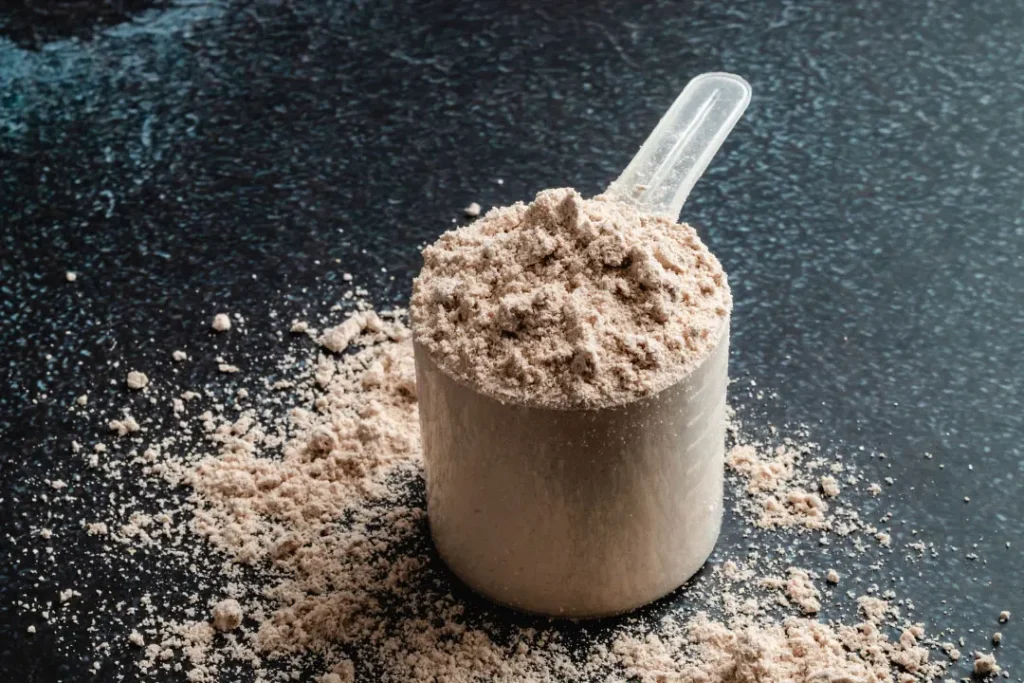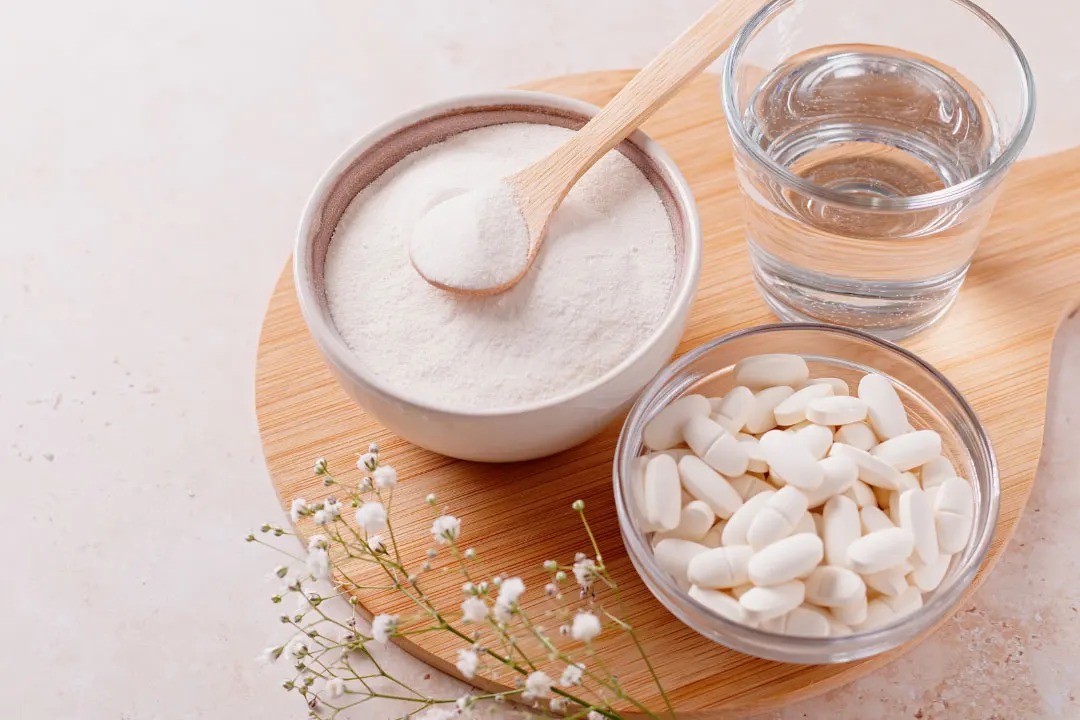Athletes and exercise enthusiasts have long understood the importance of consuming complete proteins, which include all 22 essential and nonessential amino acids. They have traditionally consumed proteins through whey and plant protein powder, however by doing this they are missing out on one of the most important and rejuvenating proteins: collagen.
You May Also Like:
Bubs Collagen Protein vs Frog Fuel Liquid Collagen Products 4.0
Recapture Your Youth With the Resveratrol Anti Aging Miracle: 7 Big Benefits You Shouldn’t Miss
The Healing Powers of Collagen: The Epic Protein That May Be Missing in Your Daily Diet is an original (News7Health) article.
What is collagen and where does it come from?
Collagen is a naturally occurring protein that plays an essential role in providing structure to bones, cartilage, muscles, tendons, and skin. Our bodies produce collagen on their own, but it can also be found in a variety of dietary sources such as fish, eggs, and dairy.
Today, you can also find collagen supplements in the form of hydrolyzed collagen peptides, which are broken down by enzymes. Using these collagen supplements can be especially helpful for active individuals and athletes due to the protein’s healing properties. But be wary – quality can vary between brands based on manufacturing techniques and other factors.
How can collagen help you heal?
Studies have shown that collagen can be especially beneficial for athletes and active individuals as it can help reduce joint pain and inflammation and speed up recovery time. Collagen helps to replenish the body’s natural reserves of proteins and amino acids that are necessary for tissue repair and ligament formation. It also has powerful anti-inflammatory qualities which can help to reduce swelling and pain associated with joint injuries or overexertion.
In addition to these benefits, collagen is critical to forming healthy bones and joints and nourishing cartilage, the cushioning between our bones that prevents them from rubbing against each other. Supplementing with collagen can help keep cartilage strong over time. Further, collagen has even been shown to improve cardiovascular health as it facilitates the formation of healthy blood vessels, reducing the risk of developing serious heart conditions.

Your whey or the highway?
You, along with many of your fellow gym-goers and athletic competitors, are likely familiar with whey and plant protein supplements. Many people add them to food, shakes, and smoothies, as a part of their athletic regimen. But these supplements are lacking in one factor that’s important to any athlete: healing power.
First, compared to collagen, whey and plant proteins are not as easily absorbed by the body. Whey protein can take up to two hours to digest, while plant protein takes even longer at three hours or more. This leaves your body without nutrients for a longer period of time as compared to taking a single dose of collagen, which is quickly and easily absorbed into the bloodstream.
If you’re a regular at your local gym or run marathons, bike long distances, or engage in other high-intensity forms of exercise, you know that healing and recovery are vital. Users of whey and plant proteins are robbing themselves of optimal recovery because whey and plant proteins are foreign proteins that can’t repair ligaments and tendons as effectively as collagen.
We mentioned above that collagen has anti-inflammatory properties. This can help reduce joint pain and inflammation after a hard workout, as well as accelerate recovery time. Chugging a whey protein powder shake post-workout may have some benefits, but reducing inflammation is not one of them. Plus, whey protein typically has a higher calorie count than most forms of collagen, so if weight loss and muscle growth are your goals, that protein shake may be working against you.
The benefits of supplemental collagen for athletes
The benefits of supplemental collagen for athletes are numerous and far-reaching. For active individuals looking to get the most out of their workouts, collagen helps keep muscles strong by rebuilding connective tissue and supporting muscle growth, reducing fatigue after strenuous exercise. Faster recovery times mean you can get back in the game sooner.
Additionally, collagen can help prevent injuries by strengthening bones and joints and assisting in the formation of healthy cartilage. Since collagen helps support healthy bone development, it’s especially beneficial for athletes who may be exposed to frequent fractures or breaks due to the intensity of their activity.
Of course, traumatic injuries are always a possibility, but using supplemental collagen can accelerate the healing process by supplying the body with essential amino acids and nutrients needed for recovery. Furthermore, its anti-inflammatory properties can reduce swelling associated with sprains and strains while promoting tissue repair at a faster rate than normal.

There’s just one problem…
With all of these benefits, why are more athletes and exercise enthusiasts not ditching whey and plant proteins, and reaching for a collagen supplement instead? Here’s the thing: collagen on its own isn’t a complete protein. It’s missing certain essential amino acids, which the body can’t generate on its own, meaning they must be derived from food or supplements.
One amino acid missing from collagen is tryptophan, which has benefits you wouldn’t want to sleep on. In fact, sleep is directly tied to tryptophan, as it’s a precursor to the hormone melatonin, which aids in a good night’s rest. Tryptophan is also a precursor to serotonin, which is vital for mood regulation and emotional well-being.
Completing the collagen protein
Luckily, for every problem, there’s a solution, and this one seems fairly straightforward: simply add tryptophan and other essential amino acids to collagen. Companies like Frog Fuel are already providing complete protein collagen in convenient ready-to-drink, pocket-size pouches that don’t require any mixing. Frog Fuel was founded by two former Navy SEALs who experienced firsthand the need for a supplement that provided the necessary nutrients for a complete recovery.
“It’s a very highly competitive environment,” says co-founder Alexander Kunz on his time in the SEALS, “and nutrition was a big part of our journey because you’re obviously trying to find anything out there that provides some competitive edge or some benefit.” Years later, he and his former platoon mate Jeff Byers founded Frog Fuel with the goal of creating a product that provided functional benefits for people at all levels of the fitness spectrum.
“Even though the product is designed as a high-performance product,” Kunz says, “It’s really [for] anybody desiring to live an active lifestyle, whether that’s golf, going out on a boat, picking up your grandchild, or wanting to compete at a high-performance level in professional sports, or even become a Navy SEAL.” Kunz and Byers recognized that the protein market was highly saturated, so they looked for ways to differentiate themselves. One of those differentiators is that Frog Fuel is made from nano-hydrolyzed collagen.

Nano-hydrolyzed collagen:
What makes it unique?
Frog Fuel’s nano-hydrolyzed collagen consists of much smaller particles compared to traditional collagen supplements, allowing the body to absorb them more quickly and in greater amounts. These particles are measured by an atomic unit known as a Dalton. For comparison, traditional collagen is 300,000 Daltons, and whey isolate is 18,000 Daltons. Using nano-hydrolyzed collagen, Frog Fuel is able to bring the particle size down to 2,000 Daltons, accelerating the delivery of essential amino acids and nutrients. In fact, a recent study found that Frog Fuel was digested four times quicker than a leading whey protein competitor.
A convenient, holistic alternative
Whether you’re an elite athlete, a regular at the gym, or simply a person that lives an active lifestyle, you may be missing out on the powerful benefits of collagen. Whey and plant-based proteins may be the more commonly known supplements, but they come up short compared to collagen, especially when you factor in complete protein collagen supplements by brands like Frog Fuel. Sure, there’s all the science-speak about amino acids, particles, and absorption, but–big picture–what collagen is really offering you is time saved: less time spent recovering from intense workouts or injuries, less time waiting for the supplement to start working, and more time engaged in the athletic pursuits you love.

Further reading:
Medical News Today: What is collagen, and why do people use it?
The New York Times: Are There Benefits to Collagen Supplements?
Good Housekeeping: Do Collagen Supplements Work? Experts Explain the Potential Benefits
Important Note: The information contained in this article is for general informational purposes only, and should not be construed as health or medical advice, nor is it intended to diagnose, prevent, treat, or cure any disease or health condition. Before embarking on any diet, fitness regimen, or program of nutritional supplementation, it is advisable to consult your healthcare professional in order to determine its safety and probable efficacy in terms of your individual state of health.
Regarding Nutritional Supplements Or Other Non-Prescription Health Products: If any nutritional supplements or other non-prescription health products are mentioned in the foregoing article, any claims or statements made about them have not been evaluated by the U.S. Food and Drug Administration, and such nutritional supplements or other health products are not intended to diagnose, treat, cure, or prevent any disease.

